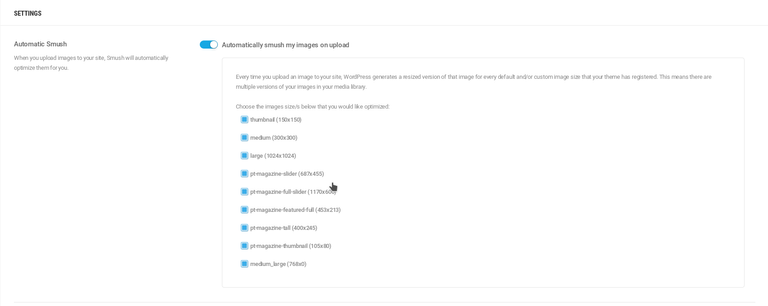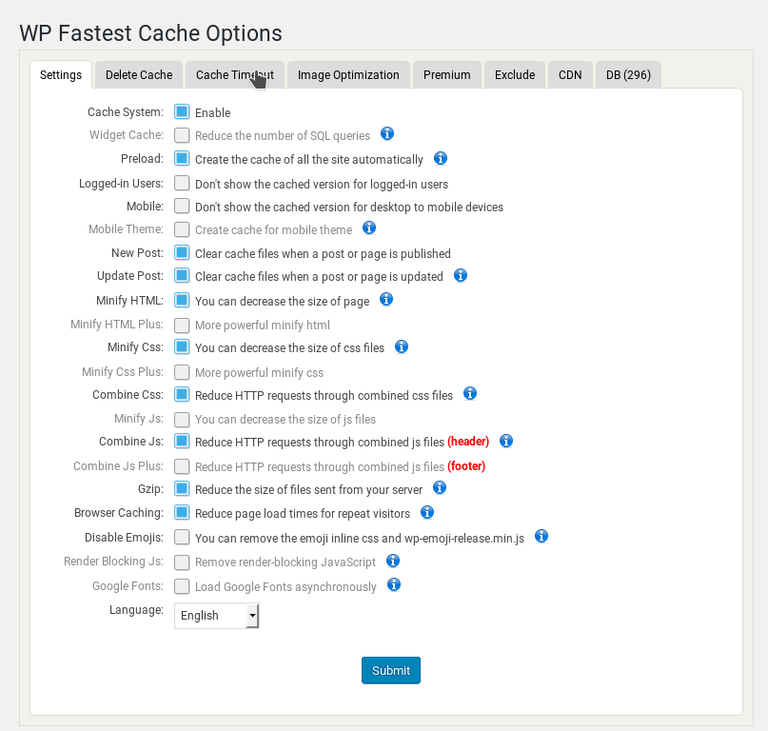WordPress is a powerful blogging platform that has evolved into a full on CMS. It powers many popular websites. I use WordPress for my site which allows me to post content easily and often.
The WordPress platform is a gigantic PHP application that dynamically renders web content each time a user visits a page. This can place a significant amount of strain on a web server as site traffic increases. It is especially troublesome if you use a cheaper shared hosting solution. Below are some suggestions to improve your site performance.
Evaluating current page performance
Before beginning to optimize, you need to get an accurate picture of your current sites performance. I recommend running the two tests below. This will provide you with both Mobile and Desktop performance scores, along with suggestions for improvement.
Optimizations/Plugins
Smush will automatically apply compression to all the images on your page. You can also set it to resize them. Smaller images = faster load times.

WP Fastest Cache will take the normal dynamic PHP pages and render them to static files. Not having to perform database lookups and realtime rendering of pages greatly reduces the amount of resources required of your web server. This in turn will allow your site to not only load faster, but it will also be able to handle a larger amount of web traffic.
In addition to generating static pages, it will also allow you to minify your HTML, CSS, and JS, and then concatenate the files. This means that the web browser will be downloading smaller files and only a single server request has to be made to grab them.

Reduce the amount of plugins on your WordPress install
If there are any inactive or active plugins in your install that you don't need, remove them.